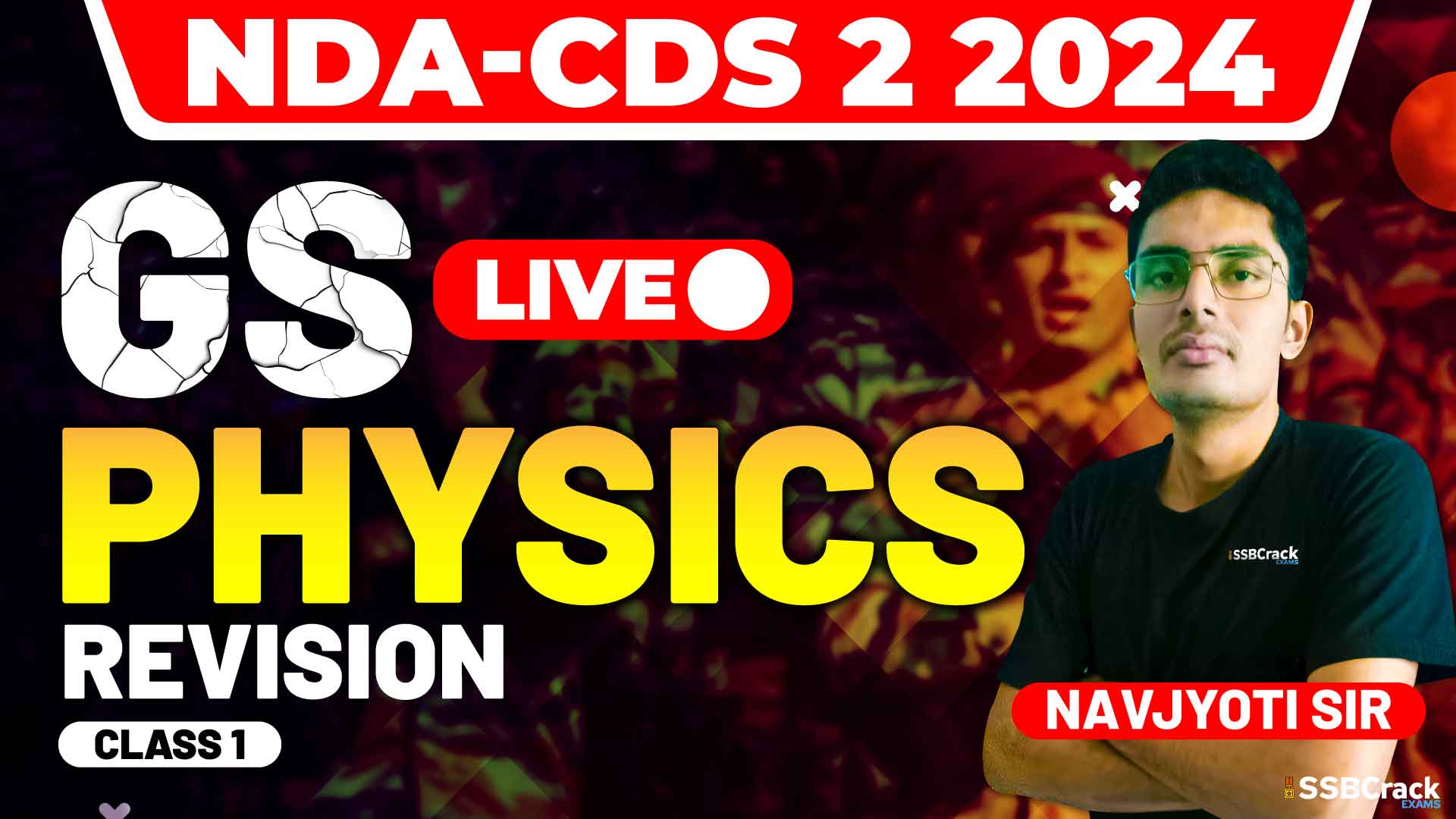Preparing for the NDA (National Defence Academy) and CDS (Combined Defence Services) exams requires a strong grasp of fundamental physics concepts. Among these, Units and Measurement, and Rotational Motion stand out as crucial topics. These subjects not only form the foundation for more complex physics concepts but also feature prominently in multiple-choice questions (MCQs) in these exams. This blog will delve into these topics, providing insights and strategies to excel in related MCQs.
Units and Measurement
Understanding units and measurements is the cornerstone of physics. It involves the study of various physical quantities and their respective units of measurement, providing the basis for all scientific observations and calculations.
Key Concepts
Fundamental and Derived Units:
- Fundamental Units: The basic units of measurement, such as meter (m) for length, kilogram (kg) for mass, and second (s) for time.
- Derived Units: Units derived from fundamental units, like velocity (meters per second, m/s) and force (newton, N).
Systems of Units:
- SI Units: The International System of Units, widely used in scientific communities.
- CGS Units: Centimeter-Gram-Second system, used in some specific fields.
Dimensional Analysis:
- A technique used to convert one kind of unit to another and to check the correctness of equations.
Strategies for MCQs on Units and Measurement
- Familiarize with Units: Ensure you know the fundamental and derived units and their conversions.
- Dimensional Consistency: Use dimensional analysis to verify the correctness of equations.
- Error Analysis: Understand different types of errors and how to calculate them.
- Practice Problems: Regularly solve MCQs to get a grip on typical questions asked in the exams.
Rotational Motion
Rotational motion involves the movement of objects around a central point or axis. This concept is crucial in understanding various physical phenomena and mechanical systems.
Key Concepts
Angular Displacement, Velocity, and Acceleration:
- Angular Displacement: The angle through which an object rotates.
- Angular Velocity: The rate of change of angular displacement.
- Angular Acceleration: The rate of change of angular velocity.
Moment of Inertia:
- The resistance of an object to changes in its rotational motion, depending on the mass distribution relative to the axis of rotation.
Torque:
- The rotational equivalent of force, causing an object to rotate around an axis.
Rotational Kinetic Energy:
- The energy an object possesses due to its rotation, proportional to its moment of inertia and the square of its angular velocity.
Conservation of Angular Momentum:
- A principle stating that if no external torque acts on a system, its angular momentum remains constant.
Strategies for MCQs on Rotational Motion
- Understand Core Concepts: Make sure you have a clear understanding of angular displacement, velocity, and acceleration.
- Moment of Inertia: Learn the formulas for different shapes and mass distributions.
- Torque and Equilibrium: Practice problems involving torque to understand rotational equilibrium.
- Energy and Momentum: Grasp the concepts of rotational kinetic energy and conservation of angular momentum.
- Regular Practice: Solve a variety of MCQs to familiarize yourself with the question patterns and difficulty levels.
Effective MCQ Strategies for NDA and CDS
- Time Management: Allocate time wisely, ensuring you don’t spend too long on any one question.
- Elimination Method: Narrow down options by eliminating clearly wrong answers.
- Read Questions Carefully: Pay close attention to what is being asked to avoid careless mistakes.
- Mark for Review: If unsure about a question, mark it for review and come back to it if time permits.
- Practice Mock Tests: Regularly take mock tests to build confidence and improve time management skills.
Conclusion
Mastering Units and Measurement and Rotational Motion is essential for excelling in the physics section of the NDA and CDS exams. By understanding the key concepts and practicing regularly, you can enhance your problem-solving skills and perform better in the exam. Utilize the strategies outlined in this blog to tackle MCQs efficiently and boost your chances of success. Remember, consistent practice and a clear understanding of fundamental concepts are the keys to acing these competitive exams.







